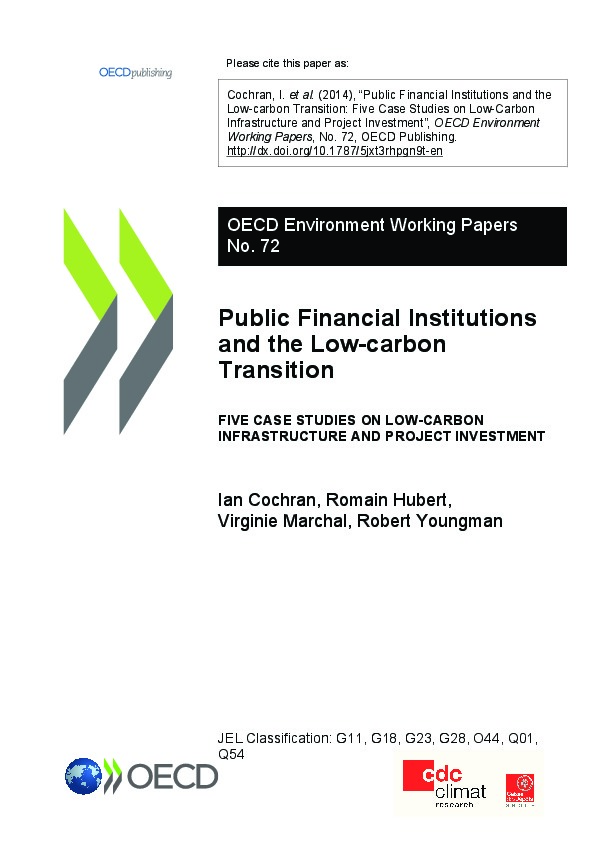Public Financial Institutions and the Low-Carbon Transition: Five Case studies on Low-Carbon Infrastructure and Project Investment
The analysis is structured around three principal areas of intervention: the use of traditional and innovative approaches to link low-carbon projects with finance through enhancing access to capital; facilitating risk reduction and sharing; improving the capacity of market actors; and shaping broader market practices and conditions.
The results of this study were presented during a side-event at COP19 in Warsaw Poland as well as to the OECD Working Party on Climate, Investment and Development.
The case studies of each institution are provided for informational purposes separate from the official OECD study by CDC Climat Research available below. The individual case studies are working documents last updated at the end of 2013. Content of the individual case studies does not reflect the official views of the OECD, its Member States nor of the institutions studied.
JEL Classification:
G11: Financial Economics / General Financial Markets / Portfolio Choice; Investment Decisions
G18: Financial Economics / General Financial Markets / Government Policy and Regulation
G23: Financial Economics / Financial Institutions and Services / Non-bank Financial Institutions; Financial Instruments; Institutional Investors
G28: Financial Economics / Financial Institutions and Services / Government Policy and Regulation
O44: Economic Development, Technological Change, and Growth / Economic Growth and Aggregate Productivity / Environment and Growth
Q01: Agricultural and Natural Resource Economics; Environmental and Ecological Economics / General / Sustainable Development
Q54: Agricultural and Natural Resource Economics; Environmental and Ecological Economics / Environmental Economics / Climate; Natural Disasters; Global Warming

